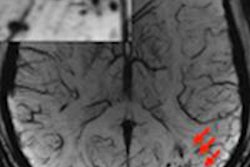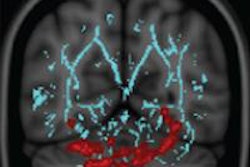Using diffusion-tensor MRI (DTI-MRI), psychiatrists with the Iowa City Veterans Affairs Medical Center and University of Iowa Health Care have found that soldiers returning from Iraq and Afghanistan with mild traumatic brain injury (TBI) have measurable abnormalities in brain white matter, compared with returning veterans with no TBI.
The abnormalities appear to be related to the severity of the injury and to cognitive deficits in the veterans with TBI. The findings were published in the December 1, 2012, issue of the American Journal of Psychiatry (Vol. 169:12).
DTI measures the diffusion of water along thin fibers known as axons that form connections between brain cells. When axons are intact, water flow follows axon boundaries and has well-defined directionality. When the axon is damaged, water diffuses in many directions, causing low fractional anisotropy.
Senior study author Dr. Ricardo Jorge and colleagues used DTI to study the brains of 72 veterans with mild TBI and 21 veterans with no signs of TBI. Analyzing the DTI scans allowed the researchers to identify areas of lower integrity in the patients' white matter.
Veterans with mild TBI had significantly more areas of low integrity than veterans without TBI, according to the researchers. The number of abnormal areas correlated with poorer performance on cognitive tests that measured decision-making and planning skills.
Jorge and colleagues also examined the brains of civilians with noncombat-related mild TBI who were assessed early after the injury. These patients had even more white-matter alterations than the military group.
Although the results suggest that DTI measurements could help detect and track mild TBI, Jorge cautioned that the study is not large or specific enough to confirm that DTI-detected areas of low integrity are a biomarker for TBI brain damage.




















